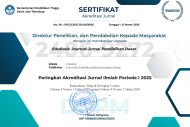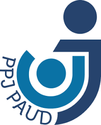Exploring Early Childhood Teachers’ Understanding of Foundational Concepts in Physical Science
Abstract
Teachers are important in promoting student learning, and as such, their foundational knowledge of concepts has been the focus of numerous research studies. While several studies have examined the impact of teachers' content knowledge (CK) on learners' performance, there is a noticeable gap in research specifically targeting early childhood education (ECE). Although there is some emerging research on ECE teachers’ Science CK, few studies concentrate on the critical scientific understanding of everyday concepts like floating and sinking, which is fundamental for children at this level. This study explores the Science CK of early childhood teachers regarding the fundamental concepts in physical science in Lesotho. Four ECE teachers were purposely and conveniently selected for interviews, observations, and analysis of their lesson plans on floating and sinking. The findings indicate that teachers' CK is fragmented. While they possess adequate competence in both common content knowledge and horizon content knowledge, their specialized content knowledge is notably limited. For example, some participants were unable to explain why objects of the same size but different materials either float or sink, highlighting the need for deeper conceptual understanding in science teaching. This study contributes to the body of knowledge for early childhood teachers’ science content knowledge. Consequently, it recommends that teacher training institutions and the Ministry of Education and Training implement ECD programs that enhance teachers’ science CK.
Keywords
Full Text:
PDFReferences
Akçay, N. O. (2016). Determining the views and adequacy of the pre-school teachers related to science activities. Universal Journal of Educational Research, 4(4), 821–829.
Andersson, K. & Gullberg, A. (2014). What is science in pre-school and what do teachers have to know to empower children? Cultural Studies of Science Education, 9(2), 275–296.
Ball, D. L., Thames, M. H., & Phelps, G. (2008). Content knowledge for teaching: What makes it special? Journal of Teacher Education, 59(5), 389–407.
Beaumont, J. (2010). A sequence of critical thinking tasks. TESOL Journal, 1(4), 427–448.
Bayuni, T. C., Sopandi, W., & Sujana, A. (2018). Identification misconception of primary school teacher education students in changes of matters using a five-tier diagnostic test. Journal of Physics: Conference Series, 1013, 012086.
Braun, V., & Clarke, V. (2006). Using thematic analysis in psychology. Qualitative Research in Psychology, 3(2), 77–101.
Campbell, C., & Chealuck, K. (2015). Approaches to enhance science learning. In C. Campbell, W. Jobling, & C. Howitt (Eds.), Science in early childhood (pp. 67–84). Cambridge University Press.
Catalano, A., Asselta, L., & Durkin, A. (2019). Exploring the relationship between science content knowledge and science teaching self-efficacy among elementary teachers. IAFOR Journal of Education, 7(1), 57–70.
Costa, H. M., Outhwaite, L. A., & Van Herwegen, J. (2023). Early years practitioners’ training, beliefs and practices concerning mathematics: Implications for education and practice. International Journal of Early Years Education, 33(3), 470–487.
Darling-Hammond, L. (2017). Teacher education around the world: What can we learn from international practice?’ European Journal of Teacher Education, 40(3), 291–309.
Etkina, E., Gitomer, D., Iaconangelo, C., Phelps, G., Seeley, L., & Vokos, S. (2018). Design of an assessment to probe teachers’ content knowledge for teaching: An example from energy in high school physics. Physical Review Physics Education Research, 14(1), 010127.
Fazio, X., & Gallagher, T. L. (2018). Bridging professional teacher knowledge for science and literary integration via design-based research. Teacher Development, 22(2), 267–280.
Gonzales, N. J. (2019). Narrative experience of seasoned teachers in teaching science using spiral progression curriculum. IOER International Multidisciplinary Research Journal, 1(2), 59–68.
Ishola A. A., & Udofia I. G. R. (2017). Effect of demographic factors and teachers’ mastery of instructional designs as predictors of pupils’ achievement in mathematics. Journal of Educational Research and Development, 15(1), 10–24.
Jakobsen, A., Thames, M. H., & Ribeiro, C. M. (2013). Delineating issues related to horizon content knowledge for mathematics teaching. Proceedings of CERME, 8, 3125–3134.
Kavalari, P., Kakana, D., & Christidou, V. (2014). Consistency between teaching practice and curriculum guidelines in a pre-school classroom: A case study. The International Journal of Early Childhood Learning, 20(4), 1–10.
Keçeci, G., & Zengin, F. K. (2017). Observing the technological pedagogical and content knowledge levels of science teacher candidates. Educational Research and Reviews, 12(24), 1178–1187.
Kelly, S., & Tannehill, D. (2012). The mentoring experience of an Irish student teacher on his physical education teaching practicum. Graduate Journal of Sports, Exercise and Physical Education Research, 1, 47–64.
Kinghorn, B. E. (2013). Gaps in Science content knowledge encountered during teaching practice: A study of early-career middle-school Science teachers. (PhD dissertation). Michigan State University, Michigan.
Kiray, S. A., Aktan, F., Kaynar, H., Kilinc, S., & Gorkemli, T. (2015). A descriptive study of pre-service Science teachers’ misconceptions about sinking-floating. Asia-Pacific Forum on Science Learning & Teaching, 16(2), 1–28.
Leuchter, M., Saalbach, H. & Hardy, I. (2014). Designing science learning in the first years of schooling. An intervention study with sequenced learning material on the topic of ‘floating and sinking.’ International Journal of Science Education, 36(10), 36(10),1751–1771.
Nowicki, B. L., Sullivan-Watts, B., Shim, M. K., Young, B. J., & Pockalny, R. (2013). Factors influencing science content accuracy in elementary inquiry science lessons. Research in Science Education, 43(3), 1135–1154.
Odumosu, M. O., Olisama, O. V., Areelu, F. (2018). Teachers’ content and pedagogical knowledge on students’ achievement in algebra. International Journal of Education and Research, 6(3), 83–94.
Paik, S. H., Song, G., Kim, S., & Ha, M. (2017). Developing a four-level learning progression and assessment for the concept of buoyancy. EURASIA Journal of Mathematics, Science and Technology Education, 13(8), 4965–4986.
Qonita, Q., Syaodih, E., Suhandi, A., Maftuh, B., Hermita, N., Samsudin, A., & Handayani, H. (2019). How do kindergarten teachers grow children science process skill to construct float and sink concept? Journal of Physics: Conference Series, 1157, 022017.
Radovanović, J., Sliško, J., & Ilić, I. S. (2019). Active learning of buoyancy: An effective way to change students’ alternative conceptions about floating and sinking. Journal of Physics: Conference Series, 1286, 012011.
Russell-Bowie, D. E. (2012). Developing pre-service primary teachers’ confidence and competence in arts education using principles of authentic learning. Australian Journal of Teacher Education, 37(1), 60–74.
Saçkes, M., Trundle, K. C., Bell, R. L., & O'Connell, A. A. (2011). The influence of early science experience in kindergarten on children's immediate and later science achievement: Evidence from the early childhood longitudinal study. Journal of Research in Science Teaching, 48(2), 217–235.
Shulman, L. S. (1986). Those who understand: Knowledge growth in teaching. Educational Researcher, 15(2), 4–14.
Södervik, I., Mikkilä-Erdmann, M., & Vilppu, H. (2014). Promoting the understanding of photosynthesis among elementary school student teachers through text design. Journal of Science Teacher Education, 25(5), 581–600.
Tekin, N., Aslan, O., & Yilmaz, S. (2020). Improving pre-service science teachers' content knowledge and argumentation quality through socio-scientific issues-based modules: An action research study. Journal of Science Learning, 4(1), 80–90.
Thanh, N., & Thanh, T. (2015). The interconnection between interpretivist paradigm and qualitative methods in education. American Journal of Educational Science, 1(2), 24–27.
Waltzer, K., Kärkkäinen, S., & Havu-Nuutinen, S. (2023). Early childhood professionals’ pedagogical decision making. International Journal of Early Years Education, 33(2), 261–271.
Zambak, V. S., & Tyminski, A. M. (2017). A case study on specialized content knowledge development with dynamic geometry software: The analysis of influential factors and technology beliefs of three pre-service middle grades Mathematics teachers. Mathematics Teacher Education and Development, 19(1), 82–106.
Zoupidis, A., Spyrtou, A., Pnevmatikos, D., & Kariotoglou, P. (2021). Teaching and learning floating and sinking: Didactic transformation in a density-based approach. Fluids, 6(4), 158.
DOI: https://doi.org/10.17509/ebj.v7i2.90470
Refbacks
- There are currently no refbacks.
Copyright (c) 2025 Universitas Pendidikan Indonesia
This work is licensed under a Creative Commons Attribution 4.0 International License.
This journal is indexed by




.png)




.png)
1.png)


1.png)

.png)